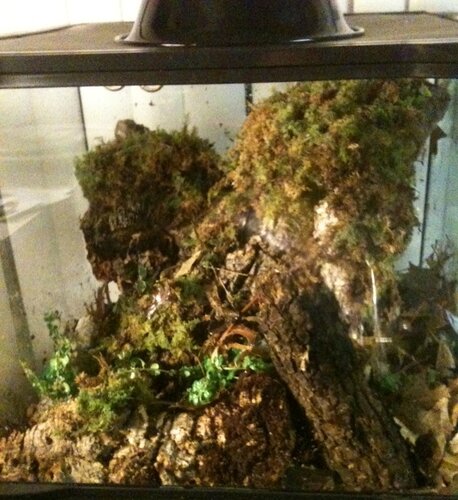Don't quote me on this, but that's also the thing with the toxins... some people, most likely healthy uncompromised people, aren't as vulnerable. They're probably also less vulnerable to carry something? I guess it's a longshot to equate that with roaches, but that's my thoughts on it.
I don't think it's a long shot at all.
Crickets are designed to live in large open fields and in trees, where they are not exposed to molds and bacteria especially not confined with it. So their bodies are not accustomed to fighting it or dealing with.
Roaches are designed to live in it. So they have adapted to deal with it.
Wild crickets eat grains, right off the plant, it's not moldy it's still alive and green.
Roaches eat grains that are rotting and decaying and covered in mold.
Isopods thrive in decay as well, they eat mold they can live off solely mold. Same with like tree snail's, they eat algae and mold off trees. Yet the Cham can eat these with no I'll effects, because the bugs have adapted to expel toxins and accept nutrients from the mold. Things have a cycle like that to deal with deadly substance in their diet.
It's the same as Poision Dart Frogs, notice they are kept? But how can that be. How can we keep a deadly frog and touch it, and keep it our house.
It's the same principal. Poision Dart Frogs in the wild are extremely deadly, however the reason is when they eat the Red Fire Ants, their body has an anti toxin that mixes with the ant venom to make sure they are okay, and the 2 toxins then combined excrete through it's skin, to kill predators. So they use their preys venom, to create a protection system for themselves, whilst becoming immune to the Ants Poison.
Take away the ants, and you take away their protection system and thus we have a safe for us to keep frog. As long as it doesn't eat the ants, you won't die for picking up your let frog.







